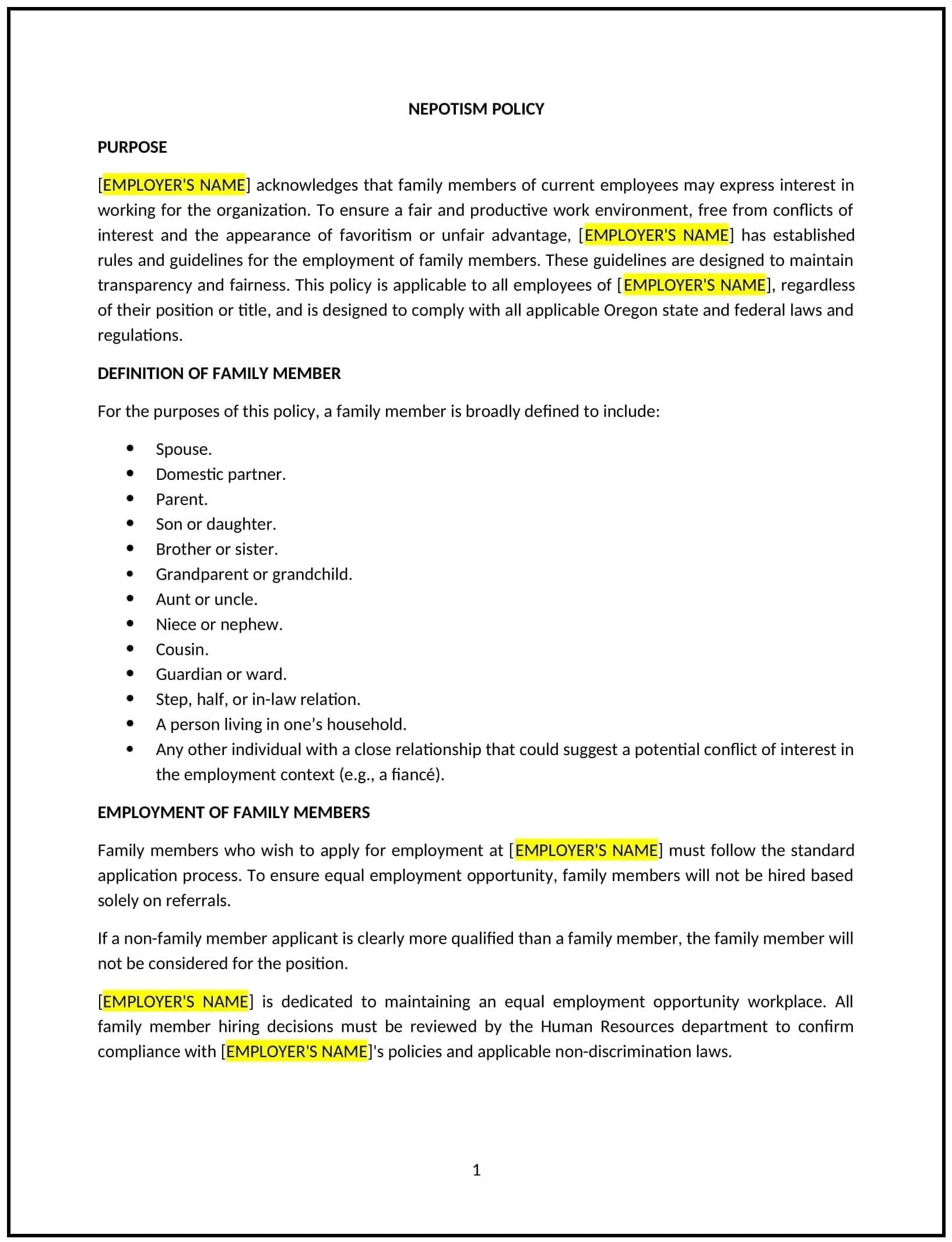Got contracts to review? While you're here for policies, let Cobrief make contract review effortless—start your free review now.

Customize this template for free
Nepotism policy (Oregon)
This nepotism policy is designed to help Oregon businesses prevent favoritism or conflicts of interest when hiring or managing family members. It outlines guidelines for hiring, supervision, and decision-making involving relatives.
By adopting this policy, businesses can promote fairness, reduce conflicts of interest, and maintain a professional work environment.
How to use this nepotism policy (Oregon)
- Define family relationships: Clarify which relationships are covered, such as spouses, children, or siblings.
- Establish hiring guidelines: Prohibit hiring family members in positions where they would report to a relative.
- Address supervision: Ensure family members are not placed in direct reporting relationships with each other.
- Set decision-making standards: Require impartial decision-making in promotions, evaluations, or disciplinary actions involving relatives.
- Train managers: Educate supervisors on handling situations involving family members fairly and professionally.
- Review and update: Assess the policy annually to ensure it aligns with evolving business needs and workplace dynamics.
Benefits of using this nepotism policy (Oregon)
This policy offers several advantages for Oregon businesses:
- Promotes fairness: Reduces the risk of favoritism or perceived bias in hiring and management decisions.
- Enhances professionalism: Maintains a professional work environment free from conflicts of interest.
- Builds trust: Demonstrates a commitment to fair and impartial treatment of all employees.
- Reduces legal risks: Minimizes the potential for disputes related to favoritism or unfair treatment.
- Supports accountability: Clearly outlines guidelines for managing family relationships in the workplace.
Tips for using this nepotism policy (Oregon)
- Communicate clearly: Share the policy with employees and include it in the employee handbook.
- Provide training: Educate managers on handling situations involving family members fairly and professionally.
- Monitor compliance: Regularly review hiring and management decisions to ensure adherence to the policy.
- Address issues promptly: Take corrective action if favoritism or conflicts of interest are identified.
- Update regularly: Revise the policy as needed to reflect changes in business needs or workplace dynamics.